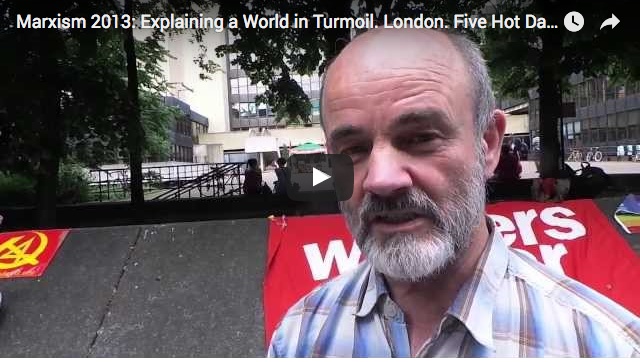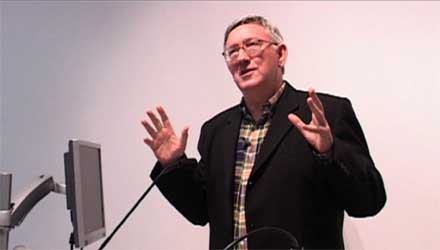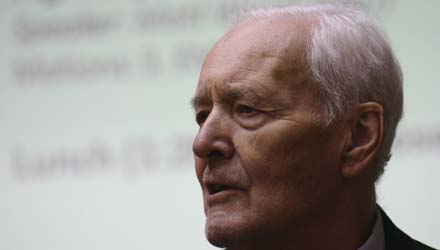The November 10 AGM of the Labour Representation Committee was on balance positive. But the left is still painfully weak both organisationally and politically. Andy Gunton of Labour Party Marxists gives his assessment
Those arriving at Conway Hall were met outside by Christine Shawcroft, Lizzy Ali and Richard Price – comrades from the minority who opposed the decision to offer the Labour Briefing journal to the LRC. Flogging their own “original” LB, they declined to stay for the meeting, leaving before LRC joint chair Pete Firmin opened proceedings.
Sadly, comrade Shawcroft also has resigned her LRC membership, thankfully taking very few comrades with her. Despite that, numbers were down. There were 160 comrades compared with 180 last year. Why the organisers are claiming 200 might owe something to wishful thinking. Or was it a factional pose? The only vote to be counted on the day involved a total of just 87 comrades (for and against – with no sea of abstentions in sight). Splits, such as has occurred in LB and the LRC, might help to clarify political lines. They can, however, lead to the weak, the inexperienced, the demoralised dropping away into inactivity. And that is what seems to have happened.
The Shawcroft-Ali-Price faction is clearly rightwing. They seek an alliance with the centre of the Labour Party, crucially those in parliament. As for comrade Shawcroft’s journal, it is a vanity project for a bruised ego and exemplifies a sadly frivolous attitude to democracy and class discipline all too common on the left. That LB proper has seen subscriptions rise substantially can only but be good news. And unsurprisingly the AGM voted overwhelmingly to adopt it as the official journal of the LRC.
John McDonnell MP moved the national committee statement. He outlined the work of the LRC over the last 12 months, highlighting the LRC’s role in helping to set up Squatters’ Action for Secure Homes (Squash – www.squashcampaign.org), and challenging the “suits” in the “larger, bureaucratic unions”.
He lambasted the Labour leadership for its timidity: 85% of proposed cuts have yet to be implemented; we face a triple-dip recession; there are 3.5 million either unemployed or working part-time; and benefits are being slashed. So it is time to draw a “line in the sand” and for LRC members to set the terms of struggle in the Labour Party: “No cuts! Our class is not going to pay for their crisis.”
Comrade McDonnell called on LRC members to build up campaigns in communities to support anti-cuts councillors. It was time to target so-called ‘pay day loans’ and “bullying bailiffs”. He finished by calling for an “international struggle against capitalism” and for “systemic change”.
Veteran campaigner Tony Benn then took the stand. “The Labour Party is not a socialist party,” he told the audience. It is a “party with socialists in it”. Very true; and something those comrades who wish to ‘reclaim’ the party, as well as those who now denounce it, would do well to note.
Our party has never been a vehicle for working class power; it was founded as a voice in parliament for the trade union bureaucracy. To transform it into a genuine ‘party of labour’ requires unremitting struggle against the bureaucratic and pro-capitalist right, within the party and within the trade unions. And that requires a combative and politically educated working class. As Stan Keable of Labour Party Marxists said, moving our LPM motion, the struggle must be to “transform the Labour Party … to fight for working class interests”.
In truth, there were rather too many top-table speeches and not enough time for the real business. As a result movers of motions were restricted to three minutes, while those opposing had only two. One for and one against – that was the sum total of every debate (although the mover also had the right of reply).
Many comrades expressed frustration because amendments are not permitted at LRC conference, meaning that rather more often than not you are faced with either passing an unsatisfactory motion or leaving the LRC with no position on a pressing issue. Fortunately, however, a motion from Communist Students to accept amendments at future conferences was passed by a clear majority.
Trade union link
Moving motion 12 on the Labour Party-trade union link, Maria Exall complained that the relationship provided a transmission belt for poor Labour Party politics into the unions. The link “works in the wrong way”, she said, calling instead for “political trade unionism”.
Understandable sentiments, clearly born of frustration with the lack of democracy within the party. But the problem with our party historically was precisely that its politics bore the stamp of “political trade unionism”, rather than the reverse. Blairism represented a clear break with this, symbolised by the formal abandonment of the old clause four. That some of the affiliated unions are now fighting back, picking on the openly pro-capitalist Progress faction, is, of course, to be welcomed. But clearly it is not enough if we want to see a socialist Labour Party.
The vision of a pure trade unionism free of party politics emerged again during the debate over motion 3, which sought to commit the LRC to democracy and grassroots organisation in the unions and to support various campaigns, such as the Grass Roots Alliance in Unite. Speaking in support of the motion, comrade Keable called for democracy in the workers’ movement, while Steve Ballard demanded the “emancipation of the trade unions”.
Jon Rogers fired the first shot in opposition. He was followed by Tony Lyons: apparently it is “not within the remit of the LRC to intervene in trade unions”. A ridiculous position, which cedes control of these important bastions of working class defence to the bureaucracy.
The Alliance for Workers’ Liberty’s Vicky Morris regretted that, while she could support “the vast majority of what’s in the motion”, the LRC should not commit to support the Grass Roots Left in opposition to other groups in Unite. But pride of place went to Thomas Butler. He took the stand to oppose motion 10; not because of its content, but because of the organisation behind it. In what amounted to the call for its expulsion, he declared the LRC affiliation of the Stalinite New Communist Party a problem: a problem for him, and a problem for his union, Unite. Unite would not affiliate to the LRC while it played host to the likes of the NCP.
In the end motion 3 fell.
Fighting cuts
Jenny Lennox chaired the panel discussion involving Labour councillors, with Andrea Oates from Broxstowe opening. Describing herself as an “anti-cuts councillor”, she told the meeting she had been personally affected by cutbacks and expressed her “frustration with the Labour Party passing on Tory cuts”. Arguing also against rent rises, she had stood on an explicitly anti-cuts platform. But she felt isolated: “There’s not a lot of support out there,” she admitted.
Fellow Broxstowe councillor Greg Marshall told comrades that Labour councillors in nearby Nottingham were implementing cuts. However, he and comrade Oates had the support of their party branch and local trades council, and were holding regular stalls in the town.
Preston councillor Matthew Brown outlined his Proudhonist vision of council-owned, income-generating wind farms, cooperatives and worker-owned businesses creating “alternatives to capitalism locally”. (While cooperatives are something our movement should seek to develop in the process of forming our class into a future ruling class, municipal utopias are no response to the current crisis.)
Unsurprisingly, the spectre of Eric Pickles loomed large. Council chamber colleagues of Gary Waring (Hull) warned him that, should they fail to make cuts, “Pickles will step in and do the job”. Islington’s Charlynne Pullen demanded we adopt a “realist position”; Labour councillors cannot “abdicate responsibility”. Islington had brought services back in-house, implemented the Boris Johnston-touted living wage and set up a ‘fairness commission’. “And made cuts,” came a heckle from the audience.
The subsequent debate focused on motion 1, with most calling on comrades to back it. Jackie Walker from Lewisham implored comrades to “support each other and not fight among ourselves”. The AWL’s Pete Radcliff said anti-cuts Labour councillors needed to be organised and visible, that councillors and trade unions must be brought together: “the LRC should take a lead in this”.
Councillor George Barrett from Barking and Dagenham spoke of his expulsion from the Labour Party last year for standing up against cuts. We need an organisation of anti-cuts Labour councillors, he said. Dan Jeffery, a councillor from Southampton, expressed sympathy with those who called on individual councillors to make a stand, but organisation was needed. Pete Firmin recounted the experience of Lambeth councillor Kingsley Abrams, who had taken a public stance against cuts. He had reluctantly taken the whip and abandoned his opposition after pressure had been applied by Unite.
Opposition came from Ted Knight. “I do not find it difficult to vote against cuts,” he told comrades. Labour councillors should “lock Pickles out of their town halls”. There are “no two ways” to oppose cuts, he said.
Fire Brigades Union general secretary Matt Wrack opened the session on ‘Fighting back industrially’. In a wide-ranging speech he gave an accurate and honest appraisal of where we are and what we need to do. “Workplace organisation has been thrown back in the last 20 to 30 years,” he reckoned. It was not sufficient to make demands of union tops “without organisation on the ground”. He castigated the left for its fragmentation, correctly calling for a single anti-cuts organisation. But to think austerity can be defeated in Britain alone is “naive”, he warned. We require international organisation to defeat austerity, and we need to discuss what drives it. According to comrade Wrack, the “labour movement has been overly modest”; we are “failing in our task.” The crisis raised questions about what sort of society we want to live in. We need to raise the demand for “a different sort of society.”
Political weaknesses
Two motions taken during the session on internationalism brought the political weaknesses in the LRC into sharp relief.
Motion 5 addressed events in South Africa surrounding the Marikana massacre, when striking miners were gunned down by police. Mike Phipps set the tone for the subsequent debate. While moving a separate motion, he took the opportunity to urge comrades to vote it down. He alleged that the emergency motion called for the splitting of the South African trade union centre, Cosatu. Not true.
The motion included a call for the break-up of the triple alliance, which subordinates the South African Communist Party and Cosatu to the African National Congress. It demanded that they, along with the South African Communist Party, the Young Communist League and the South African Student Congress, must “fight for the political and organisational independence of the working class”.
Opposing, Robin Hanford reminded comrades that the ANC was a member of the Socialist International and therefore a fraternal organisation of the Labour Party. How could he, he demanded angrily, go to a meeting of the SI’s youth organisation and denounce the ANC? And why not, comrade? Surely, it would be inexcusable if you did not. As one comrade correctly pointed out during the debate, the ANC government is “a capitalist government”.
Moving emergency motion 1, Gerry Downing called on comrades to defend activists in the Democratic Socialist Movement of South Africa. The DSM – the South African section of Peter Taaffe’s Committee for a Workers’ International – is campaigning in support of striking miners and has been targeted by elements within the SACP as a result. Accused of being linked to, or involved in, several apartheid-era atrocities, DSM details – names, addresses and photographs – have been posted on an internet forum associated with the SACP. This amounted to a hit-list and was “an invitation to assassinate DSM members”, declared comrade Downing.
There was greater controversy with motion 4 from the Irish Republican Prisoners Support Group. It called for the release of political prisoners, highlighting Palestinians in Israel and Naxalites in India. However, it was the paragraphs dealing Irish republican prisoners which split the meeting.
Opposing motion 4, a comrade from Socialist Appeal warned, should we pass the motion, we would have to call for the release of those who had murdered prison officer David Black, shot while driving to work. Such actions were not part of working class tradition, he claimed. Presumably comrades from the AWL were of a similar opinion: they also voted against. Nevertheless, the motion was passed, by a margin of 52 to 35.
Broad church
The Labour Party Marxists motion was passed, almost unnoticed, it seems. Given the politics on display from the majority of comrades, this cannot be because Marxist ideas won out against reformism. The LRC majority has not abandoned its Labourite politics; it remains wedded to the forlorn hope that a Labour government, of whatever political stripe, is better than the Tories.
The LRC church is a broad one. It contains members, often councillors, who in times past would have been considered very much on the soft left of the party. They, alongside left Labourites masquerading as Marxists, and Marxists masquerading as left Labourites, form the core of the LRC.
Around Ted Knight, Graham Durham and Gerry Downing there exists an amorphous grouping of comrades whose ultimatist response to cuts – ‘General strike now!’ – is basically healthy in terms of class instincts, but refuses to acknowledge the parlous state of our class, politically and organisationally. We cannot call forth battalions which do not, as yet, exist, no matter how splendid our slogans sound. That is why our LPM motion specified that “Our key aim … is to rebuild, democratise and re-educate the entire labour movement.” There are no short cuts.






